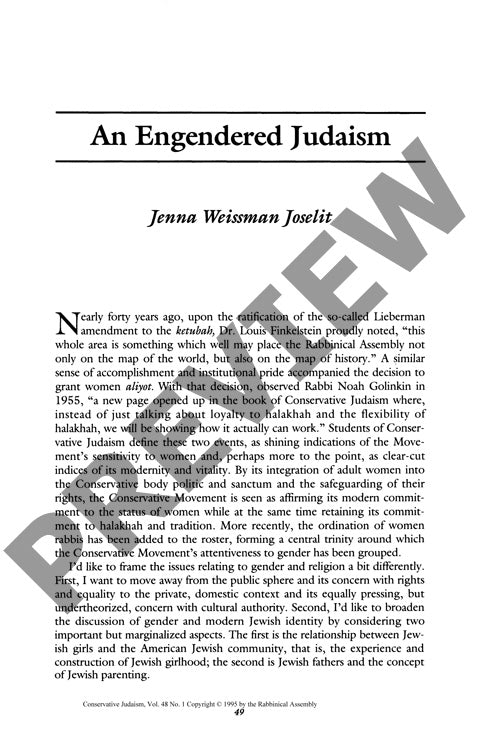An Engendered Judaism
Couldn't load pickup availability
Conservative Judaism's struggle with gender roles extended far beyond the familiar story of women's ritual participation, revealing complex dynamics around Jewish girlhood and fatherhood that shaped religious innovation from the 1920s through 1950s. Historical analysis of primary sources demonstrates how concerns about young women's alienation from religious life spurred the creation of Bat Mitzvah and Confirmation ceremonies - conservative solutions that integrated girls into community practice while carefully preserving traditional gender boundaries. Simultaneously, religious leaders grappled with anxieties about Judaism's perceived feminization, noting women's dominance in congregational life and fathers' conspicuous absence from religious practice. Taking cues from Protestant Christianity's "Men and Religion Forward Movement," Conservative Judaism developed educational programs and community initiatives promoting active Jewish fatherhood. Through examination of contemporary writings by Jewish educators and community leaders, this research reveals how domestic-focused innovations addressed gender concerns without fundamentally challenging religious structures. While these developments demonstrated Conservative Judaism's growing sensitivity to modern gender dynamics, they cannot be interpreted as a straightforward progression toward gender equality or women's eventual rabbinical ordination. Instead, they represent carefully calibrated responses to perceived threats to traditional Jewish family and community life.

More Information
-
Physical Description
-
Publication Information
Published 1995
ISBN
-
Publication Credits
Jenna Joselit

